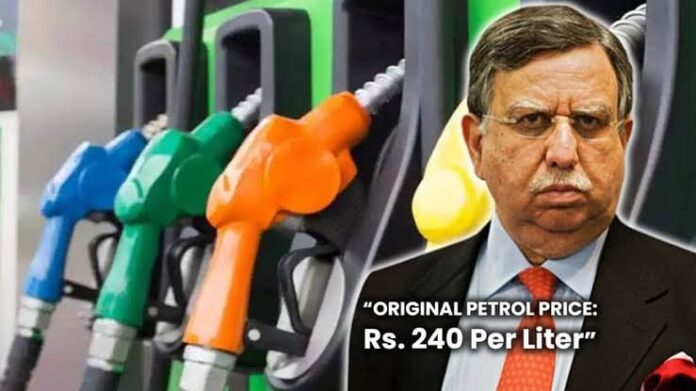The government will have to pay Rs104 billion from the exchequer to keep petrol prices at Rs150 per litre, according to Federal Finance Minister Shaukat Tarin. Aside from that, based on current worldwide prices, the domestic fuel price should be Rs240 per litre.
The government, however, is concerned about the super cycle of inflation, since commodity prices have risen dramatically, impacting the urban lower middle, middle, and salaried classes.
“If the super cycle of inflation continues, it will have a greater impact on the public,” Tarin warned during a conference on the Revival of Pakistan Economy and Outlook in 2022 organised by the Aiwan-e-Karkunan-e-Pakistan and the Nazria-e-Pakistan Trust.
“This year, we estimate a growth rate of more than 5%, but inflation will be between 8% and 10%.” The government is no longer concerned about the growth rate since it has placed the economy on the correct track, but the super cycle of inflation is a serious problem,” he said, adding that a bumper crop of wheat is in the offing in Sindh, where harvesting has already begun.
The service and manufacturing industries are doing nicely. This will aid in the attainment of the growth goals. All bumper crops, he claims, will contribute 2.5 percent to growth.
Regardless of whether the PTI remains in power or not, the government’s roadmap will not be altered.
“We have modified our growth plan, and the IMF estimates that Pakistan’s current 5% growth rate would last until 2026,” he said, adding that the globe has been affected by the super cycle of inflation, and that the world is now debating how to bring commodities prices down.
The worldwide supply chain was disrupted by Covid-19, but as the recovery began, the Ukraine crisis surfaced, exacerbating the rise in gasoline prices.
The volume of marine freight surged fourfold. These are some of the elements that contribute to inflation.


